What is PVC Flooring: A Complete Guide to this popular flooring option
Within the last couple of years, PVC flooring-also widely known as vinyl flooring-saw a strike in popularity not only among residential but also among commercial consumers. Besides its being very inexpensive, durable, and arriving in an excellent variety, it turns out to be the perfect solution for households, designers’ projects, and business enterprises. And below is an attempt to dwell on what PVC flooring actually is, its main advantages, and why it may be the best option for your future projects.I will elaborate on the following aspects:
- What is PVC Flooring?
- Major Benefits of PVC Flooring
- Where Can PVC Flooring Be Used?
- How to Choose the Right PVC Flooring?
- Installation and Maintenance
- Why PVC Flooring?
- Conclusion
What is PVC Flooring?
PVC Flooring is an artificial floor material prepared from plasticizers, stabilizers, and fillers in a combination. It is prepared in such a way that the material is flexible and resistant, while at the same time impervious to water.It can look just like these really expensive alternatives of wood, stone, or ceramic tile, yet much cheaper.
Major Benefits of PVC Flooring
PVC Flooring | Solid Wood Flooring | |
Installation Ease | Easy to install Comes with adhesive backing Peel and stick | Difficult to install Requires professional installation |
Fire Resistance | Flame-retardant Good fire resistance | Not fire-resistant Easily flammable |
Surface Hardness | High surface hardness Resistant to scratches | Low surface hardness Easily scratched |
Stability | Good stability Resistant to temperature changes and water exposure | Poor stability Prone to deformation or damage from temperature changes and water exposure |
PVC Flooring | Ceramic Tiles | |
Underfoot Feel | Warm and comfortable | Warm and comfortable |
Installation Ease | Comes with adhesive backing Easy to install | Heavy Requires professional installation |
Safety | Slip-resistant Flame-retardant Soft texture provides cushioning | Waterproof, Flame-retardant Hard texture with no cushioning |
Application Range | Suitable for both residential and commercial use, widely used in living rooms, dormitories, shops, etc. | Mostly used indoors, especially in kitchens and bathrooms. |
(1) Durability: The fact that PVC floor is very durable promotes it a lot for commercial spaces and also for busy households.
(2) Water-Resistance: One of the major benefits of PVC floor is its resistance to water, hence ideal for moist-prone areas like bathrooms, kitchens, and basements.
(3) Low Maintenance: The flooring is made of PVC; it requires merely light sweeping and occasional mopping to keep it fresh for a long time.
(4) Comfort: Unlike the feel of harder flooring, the material of PVC floors is softer on the feet, better comforting the people walking on it even for long stretches.
(5) Cost-Effective: Compared to natural materials, such as wood or stone, PVC floor is much cheaper while being equally good in appearance and quality.
Where Can PVC Flooring Be Used?
Due to its versatility, this kind of flooring is found to be used for all purposes:
(1) Residential: Kitchens, bathrooms, basements, and living rooms benefit from PVC flooring’s water resistance and ease of maintenance.
(2) Commercial: Offices, retail stores, and healthcare facilities often use this kind of flooring for its durability and cost-effectiveness.
(3) Outdoor Spaces: Some types of this kind of flooring are designed for outdoor use, such as patios or balconies, where they offer weather resistance and easy maintenance.
How to Choose the Right PVC Flooring?
When selecting PVC flooring for your project, consider the following factors:
(1) Design: Choose from a wide range of colors, patterns, and textures to suit your space’s style. Whether you want a wood-like appearance or a sleek stone look, there’s a PVC option to fit your vision.
(2) Thickness: The thickness of the flooring can affect its comfort and durability. Thicker floors tend to be more cushioned and long-lasting, especially in high-traffic areas.
(3) Installation Type: This kind of flooring comes in peel-and-stick, glue-down, and floating installation methods. Choose the best one according to your skill and project requirements.
Installation and Maintenance
Installation of this kind of flooring is relatively easy, especially for the DIYers. You will not need anything more than basic tools for either peel-and-stick tiles or floating planks. Glue-down options may be harder to DIY, but also offer increased durability in high-traffic areas.
About maintenance, PVC requires very little. The material is resistant to stains, and cleaning of the surface is easily done with a damp mop and mild detergent. Harsh cleaners should be avoided to prevent possible damage to the surface.
Why PVC Flooring?
Among all, this kind of flooring provides the best amalgamation of style, functionality, and affordability. Due to the durability, water resistance, and low maintenance of this kind of flooring, it is the most wanted by every home and commercial sector. Due to large availability in designs, one can easily find a flooring option that will complement the decor.
In Conclusion
Ultimately, PVC flooring is a great option for anyone looking for an affordable yet durable and graceful flooring solution. Renovating your home or updating a commercial space with this kind of flooring involves a great deal of benefits that make it stand out. Finally ready to explore the possibilities? Please browse through the different styles and designs to find the perfect fit for your project.
For any questions or further details about our flooring product, please do not hesitate to contact us today for exclusive deals and a quick response service!
If you want to know more, please feel free to contact us, send an inquiry and enjoy the discount.







